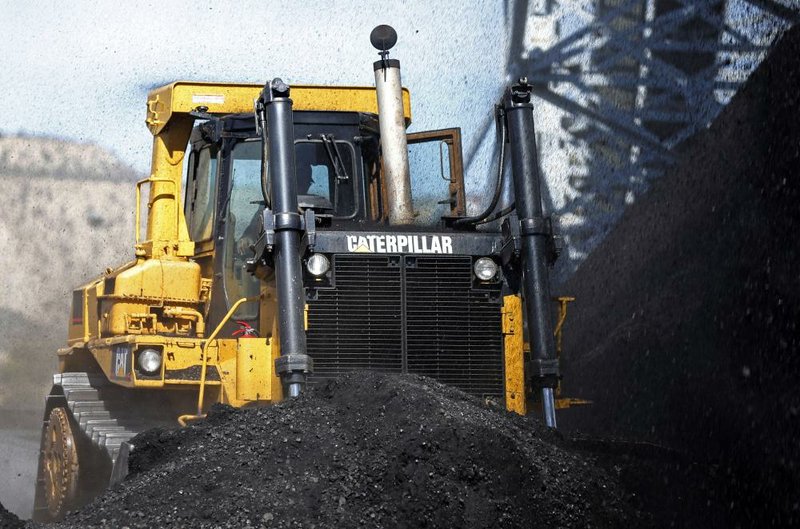WASHINGTON - A Senate investigative panel is examining Caterpillar Inc. and whether the company improperly avoided U.S. taxes by moving profits outside the country, three people familiar with the inquiry said.
The Senate’s Permanent Subcommittee on Investigations will hold a hearing in early April, two of the people said. They spoke on condition of anonymity before an official announcement.
Rachel Potts, a spokesman for Caterpillar, declined to comment. Gordon Trowbridge, a spokesman for subcommittee Chairman Carl Levin, also declined to comment.
In 2009, Daniel Schlicksup, an employee who had worked on Caterpillar’s tax strategy, alleged in a lawsuit in federal court that the company used a “Swiss structure” to shift profits to offshore companies and avoid more than $2 billion in U.S. taxes.He also alleged that Caterpillar used a “Bermuda structure” involving shell companies to return profits to the U.S. without paying required taxes.
According to Schlicksup’s complaint, the Swiss structure involved “many shell corporations with no business operations,” in which the management of profitable businesses was technically shifted to Switzerland while actually remaining in the U.S.
Schlicksup’s lawsuit,which alleged that Caterpillar executives retaliated against him, was settled in 2012, according to court filings. The company denied the allegations, which Bloomberg News first reported in 2011.
The Senate subcommittee led by Levin, D-Mich., has been examining tax avoidance by multinational companies. Microsoft Corp., Hewlett-Packard Co. and Apple Inc. have been the subjects of previous hearings by the panel.
The 2013 investigation into Apple uncovered a subsidiary that earned $30 billion over four years with no home for tax purposes.
The subcommittee also has investigated Swiss banks such as Credit Suisse Group for aiding tax evasion by wealthy Americans.
In 2013, Caterpillar, based in Peoria, Ill., reported earning 62.2 percent of its pretax income outside the U.S. Shares of Caterpillar rose $1.18, or 1.2 percent, to close Friday at $97.39.
The company, which had $55.7 billion in revenue in 2013, is the largest maker of construction and mining equipment. On its website, Caterpillar says it has customers in more than 180 countries.
The U.S. has the industrialized world’s highest corporate tax rate at 35 percent. Companies based in the U.S. can defer U.S. taxes on their foreign income until they bring profits home.
To reduce taxes further, companies centralize their foreign profits in low-tax jurisdictions such as Bermuda, Switzerland and the Netherlands.
As of Dec. 31, Caterpillar had $17 billion in accumulated overseas profits that haven’t been taxed by the U.S., up from $11 billion three years earlier. The largest U.S. companies have accumulated $1.95 trillion outside the country, up $206 billion from last year, according to a Bloomberg News analysis.
Governments in the Group of 20 and the Organization for Economic Cooperation and Development have been focusing on preventing profitshifting by companies. The governments are working to come up with unified rules.
Caterpillar said in a securities filing last month that it has received notices from the Internal Revenue Service saying that it owes more in federal taxes.
“We disagree with these proposed adjustments, and to the extent that adjustments are assessed upon completion of the field examination relating to these matters, we would vigorously contest the adjustments in appeals,” Caterpillar said in the filing.
Caterpillar has been active in lobbying for more favorable U.S. tax treatment of foreign income.
In 2011, Ed Rapp, then the company’s chief financial officer, told the House Ways and Means Committee that Congress should do a “foreign tax code tear-down” and replace the current system with a “territorial” system that wouldn’t include the residual U.S. tax upon repatriation of profits.
“I am not asking for special treatment, but am simply asking for a level playing field versus our foreign competitors,” he said.
Congress has been debating international taxation for years. Rep. Dave Camp, a Michigan Republican who leads the House Ways and Means Committee, introduced a tax-code revamp last month that included a territorial system.
Business, Pages 27 on 03/22/2014
